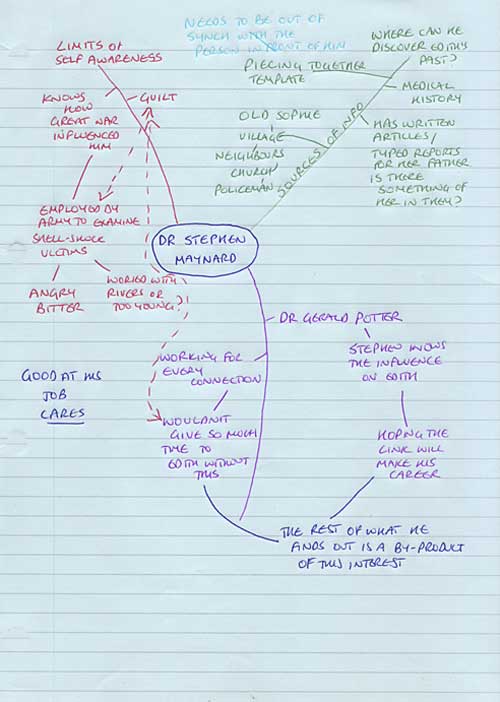Lewes January 1927
[The psychologist] is concerned with the experiences which make up the life-history of the individual mind.
The quotation from Stout that introduces Part II is, in essence, the job description of a 1920’s psychologist. So here we have my notes of notes on the novel’s psychoanalyst, Dr Stephen Maynard:
- Idealistic, romantic. Ruthless in his ambition. Guilt plays a big part in his make up.
- Follower of Jung rather than Freud. Instinctive rather than rigorous.
- Classic participant in the Karpman Triangle of rescuer, victim, persecutor.
- Probing a patient’s pain is easier than facing his own.
- Needs to rekindle Edith’s interest in the external world.
- Cure might not be possible but accommodation is feasible.
- Introverts may repress their affects to an unnecessary and harmful degree. Seeing emotion as weak and morbid (common in medical men!) confirms them in the habit of repression. For these people catharsis – even that induced by alcohol – may have great value.
- A kind man. But a coward at heart.
- Major word for Stephen is ‘forgiveness’.
Explore more of my mind-maps:





